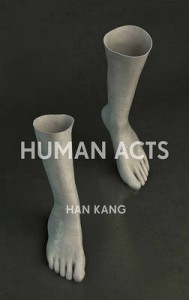You may have heard about the controversy around Lionel Shriver’s recent keynote speech at Brisbane Writers Festival. The flaws in Shriver’s argument have been outlined elsewhere (here, for example); but I was struck by how clearly some of her underlying assumptions illustrate a particular approach to fiction.
“Who dares to get inside the very heads of strangers, who has the chutzpah to project thoughts and feelings into the minds of others, who steals their very souls?” asks Shriver. “The fiction writer, that’s who.” At first glance, this might just seem to be common sense, but it assumes a particular relationship between the writer and her material: not just one of taking, but also one of assuming control over what is taken.
This can lead to situations such as one from Shriver’s latest novel, The Mandibles, which she describes later in the speech:
In The Mandibles, I have one secondary character, Luella, who’s black. She’s married to a more central character, Douglas, the Mandible family’s 97-year-old patriarch. I reasoned that Douglas, a liberal New Yorker, would credibly have left his wife for a beautiful, stately African American because arm candy of color would reflect well on him in his circle, and keep his progressive kids’ objections to a minimum. But in the end the joke is on Douglas, because Luella suffers from early onset dementia, while his ex-wife, staunchly of sound mind, ends up running a charity for dementia research. As the novel reaches its climax and the family is reduced to the street, they’re obliged to put the addled, disoriented Luella on a leash, to keep her from wandering off.
From Shriver’s account, Luella exists within the novel solely for the purpose of teaching Douglas a lesson, and being part of a neat little artistic counterpoint; and never mind that she ends up humiliated and presented as bestial. At one point in her speech, Shriver takes issue with the idea that there may be a difference between ‘representing’ and ‘exploiting’ characters. I would suggest that one definition of exploiting a character might be this: manipulating a life purely for fictional ends, with no concern for the implications.
So, what alternatives are there? One good recent example of a different approach, I think, is Han Kang’s novel Human Acts. This concerns the Gwangju Uprising, which took place in Han’s home town when she was a child; but, even so, the book does not treat the experience of the event as ‘belonging’ to the author. Indeed, the epilogue (written from Han’s viewpoint) brings the question of how to write about the uprising into the work itself. It suggests that Han could only apprehend these events from a distance and in fragments; and this is also how readers experience the novel. Han allows her material to be what guides her way of writing.
Human Acts is stronger as a work of art because it confronts the problems inherent in its own making. It illustrates something that I often feel about fiction: in the best work, there is a sense that the author has spent time considering what it is that she’s doing in writing that work.

18th September 2016 at 9:15 am
Interesting distinction, well articulated – thanks. I had mixed feelings about this Shriver controversy, & you’ve helped clarify some of the issues for me.
19th September 2016 at 12:47 am
Fiction was specifically invented to exploit characters. Stranding a man on a desert island for decades to see what he does: unethical. Imagining a man stranded etc.: ethical.
20th September 2016 at 7:57 pm
I think you’ve hit on an important distinction – it’s not what is written about, but how (well) it’s written – and, in particular, with an awareness when you are writing outside your own experience.
I would hate to see a blanket ban – I wonder why a man would write from the point of view of a woman, but then I remember Sunset Song. (I’m sure you could find an example that works in every case).